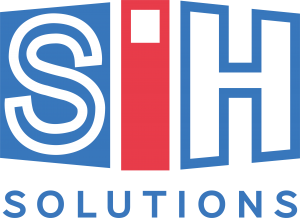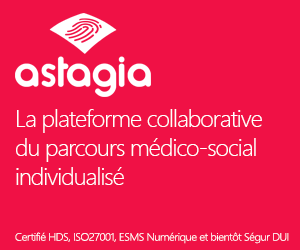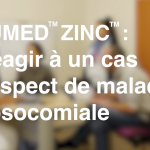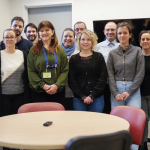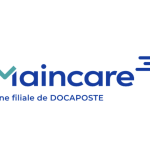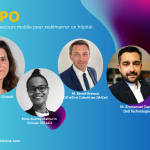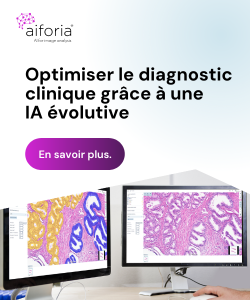Depuis une dizaine d’années, Dell Technologies est fortement implantée dans le secteur de la santé. Son objectif est d’aider les organisations à renforcer leur souveraineté numérique. Un enjeu de taille qui se concrétise progressivement. Steven Lazer, directeur de la technologie en santé et David Dimond, responsable de l’innovation en santé de Dell Technologies États-Unis nous en disent plus sur les actuels enjeux en santé.
Quels sont les principaux sujets en santé pour Dell Technologies cette année ?
Steven Lazer : Les sujets de Dell Technologies en santé sont principalement centrés sur la transformation numérique. Nous voulons aider les organisations de santé à se moderniser sur le plan digital et à utiliser leurs données via des technologies de gestion. C’est une clé pour leur permettre d’intégrer le cloud.
Globalement, quelles sont les principales innovations prévues ?
David Dimond : Nous faisons de l’innovation sur plusieurs strates. On se concentre surtout sur le développement de l’intelligence artificielle avec nos partenaires. Notre approche en matière d’innovation consiste à nous aligner, sous la direction de Michael Dell, directeur général de Dell Technologies, pour faire progresser la santé humaine. L’un de nos projets phares est le Digital Medical Twin, qui utilise la technologie open source et un écosystème complet pour une accessibilité mondiale des données sur la COVID-19, notamment pour le COVID long. Nous avons aussi réalisé des projets d’impact mondial comme Digital Life Care en Inde pour le dépistage médical. Ces avancées innovantes ouvrent la voie à une utilisation sécurisée et éthique des données, mais aussi à de nouvelles approche de l'intelligence artificielle.
La souveraineté est un sujet clef en Europe. Comment une société américaine comme Dell se positionne dans un monde dominé par des clouds américains ?
David Dimond : Tout d’abord, Dell Technologies n’exploite pas son propre cloud dans tous les pays. Il l’exploite depuis peu États-Unis, ce qui était nécessaire pour soutenir nos collaborateurs sur le cloud et la souveraineté de leurs données. Pour le cloud, chaque pays a sa propre réglementation, que vous soyez assujetti ou non au RGPD.
Steven Lazer : Chez Dell Technologies, nous résolvons des problèmes en créant les solutions les plus adéquates, que cela concerne la santé ou non. Nos partenariats, avec
des organisations du monde entier (intégrateurs, revendeurs…) permettent de soutenir
l’innovation sociale et de développer des outils data dans de nombreux pays. Ce partage
sécurisé des données ne peut se faire sans des outils numériques robustes.
Modernising health in Europe, the challenges of Dell Technologies
For the past decade, Dell Technologies has had a strong presence in the healthcare industry. Its objective is to help organizations strengthen their digital sovereignty. A major
issue that is gradually becoming a reality. Steven Lazer, Chief Health Technology Officer and David Dimond, Head of Health Innovation at Dell Technologies USA, tell us more about current health issues.
What are the health topics for Dell Technologies this year ?
Steven Lazer: The topics for Dell Technologies in health are primarily focused on digital transformation. Data privacy an security, and of course AI or artificial intelligence. To begin this journey healthcare organizations need to digitally transform and modernize their use of data. Data management technologies are a beginning strategy to digitally transform the organization. This is a key to enabling them to integrate their data into and new approach whether in a public, private, or Co located cloud.
Overall, what are the main innovations planned ?
David Dimond: We innovate on several levels. We focus mainly on the development of
artificial intelligence with our partners. Our approach to innovation is to align, under the
leadership of Michael Dell, General Manager of Dell Technologies, to advance human progress. One of our flagship projects is the Digital Medical Twin, which uses open source technology and a comprehensive ecosystem for global access to COVID-19 data, especially for long COVID. We have also completed global impact projects like Digital LifeCare in India for medical screening. These innovative advances pave the way for a secure and ethical use of data, but also for new approaches to artificial intelligence.
Sovereignty is a key issue in Europe. How does an American company like Dell position itself in a world dominated by American clouds ?
David Dimond: First of all, Dell Technologies does not operate its own cloud in every
country. It recently operates in the United States, which was necessary to support our
cloud collaborators and the sovereignty of their data. For the cloud, each country has its
own regulation, whether or not you are subject to the GDPR.
Steven Lazer: At Dell Technologies, we solve problems by creating the right solutions,
whether it’s for health or not. Our partnerships with organizations around the world
(integrators, resellers, etc.) enable us to support social innovation and develop data tools
in many countries. This secure data sharing cannot be done without robust digital tools.
 Français
Français
